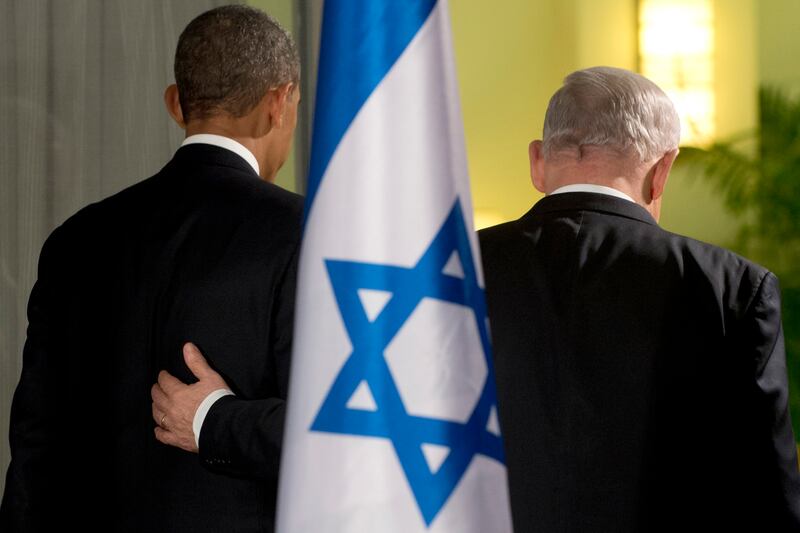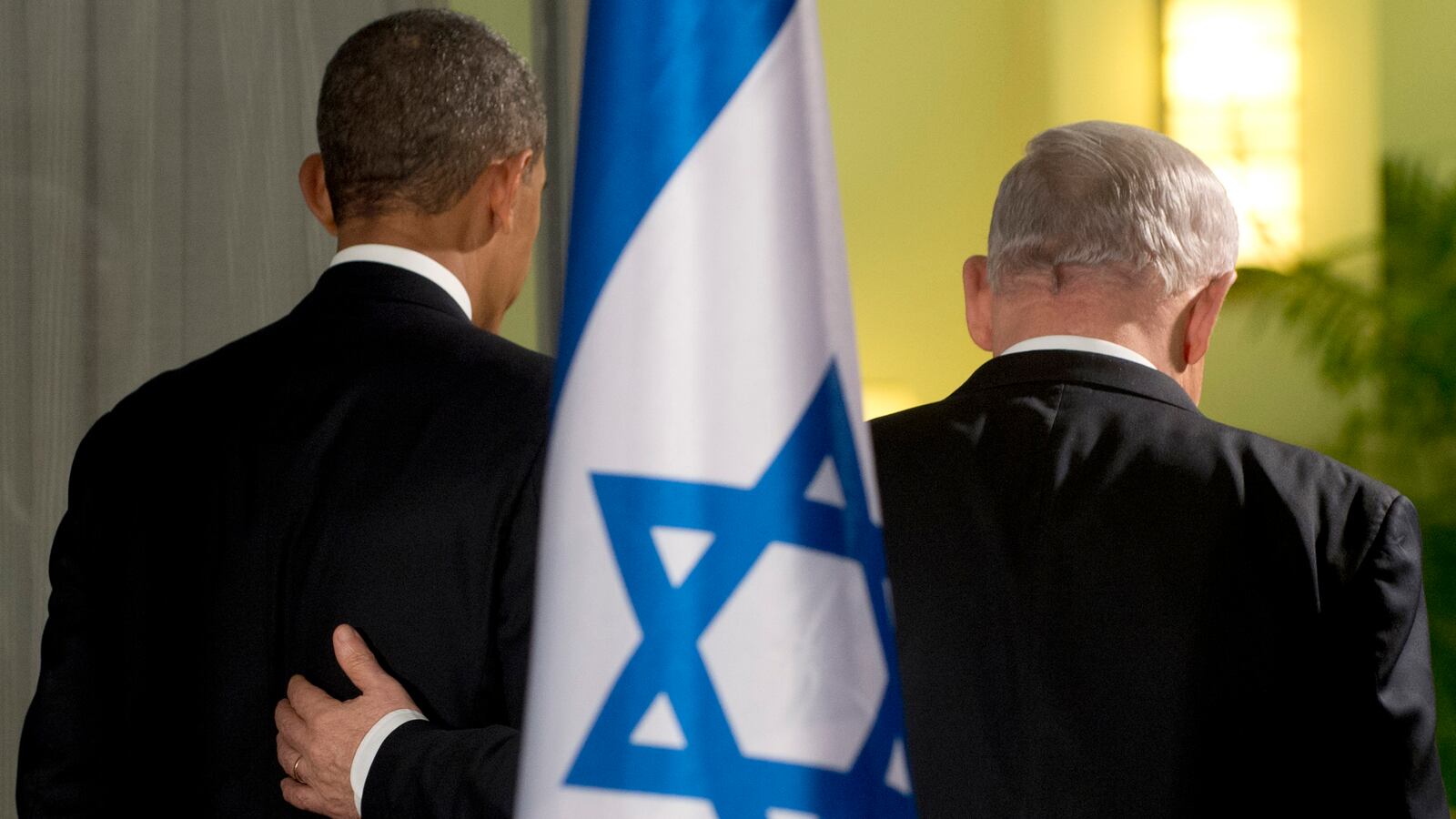While the peace process between the Israelis and the Palestinians has stalled, President Obama and Prime Minister Netanyahu have appeared to reach a settlement to their conflict.

On Wednesday evening Netanyahu repeatedly praised Obama on a range of issues. He thanked him for agreeing to start talks on extending the annual $3 billion military aid package to Israel for another 10 years after the current agreement expires in 2017. Asked by NBC’s Chuck Todd why so many Israelis did not seem to like Obama, Netanyahu said he would hope the people of his country would “get to know Obama, the way I know Obama.”
Netanyahu also affirmed that his new government is fully committed to negotiating a two-state solution with the Palestinians. This might be news to some members of the more right-wing parties that have supported more building within settlements on the West Bank, a policy opposed by successive U.S. administrations.
But most important, Netanyahu said he trusts Obama when it comes to Iran. “I am absolutely convinced that the president is determined to prevent Iran from getting nuclear weapons,” he said. “I also appreciate the fact that the president has reaffirmed more than any other president Israel’s right and duty to defend itself, by itself, for itself. That sums up our common view.”
This is a big change from last summer and early fall. Back then Netanyahu was strongly hinting that Iran’s enrichment of 20 percent or medium enriched uranium was approaching the point where Israel would have to take military action. Obama had pulled out a series of stops to get Netanyahu to back off. Eventually Netanyahu backed down and declared a new “red line.” Nonetheless, the two remained wary of one another.
Today the two leaders were acting like old pals. Obama quoted a letter from Netanyahu’s brother Yonatan, the only Israeli soldier killed in the daring raid on Entebbe, Uganda. Obama joked that his two sons, Yair and Avram, were handsome and therefore they must take after their mother. Netanyahu said the same was true for Sasha and Malia.
To be sure, the two countries still have some disagreements. Obama said the United States was still trying to determine whether the Syrian government used chemical weapons in an attack Tuesday in the city of Aleppo. The Israeli government has told the press that its assessment is that the Syrian regime indeed did use those weapons.
The use of chemical weapons was another red line, this time for the United States. Obama said that if U.S. experts and analysts determined chemical weapons were used, then this would be a “game changer.” But he did not specify what the United States would do.
“I do think when you start seeing weapons that could cause potential devastation and mass casualties and you let that genie out of the bottle, then you are looking at even more horrific scenes than what we are seeing in Syria,” he said.
Before meeting Netanyahu, Obama paid his respects to Israeli President Shimon Peres. The Israeli presidency is a largely ceremonial job, but because Peres has such stature on the world stage, he has been entrusted with some of the nation’s most sensitive diplomatic tasks. Last year Obama presented Peres with the highest U.S. civilian honor, the Medal of Freedom.
For the Peres meeting, Israeli schoolchildren waved Israeli and American flags and sang a Hebrew song about achieving peace. After their meeting, Peres said, in his thick Polish-accented English, that Obama had made the dream of Middle East peace a possibility. Obama planted a sapling in the garden of the presidential residence and even quoted a story from the Jewish Talmud.
But there was also a sticking point. Last week Peres agreed to take a petition to the U.S. president from leading Israeli intellectuals and public figures asking for the release of Jonathan Jay Pollard, currently serving his 28th year of a life sentence for spying against the U.S. A spokesman for the office of the Israeli president confirmed to The Daily Beast that Peres presented the petition to President Obama, and the two discussed the matter. Obama, however, did not budge, according to two other Israeli officials. The president already told an Israeli television station last week that he would not release Pollard at this moment. Perhaps it shows that there are limits even to the closest of friendships.






